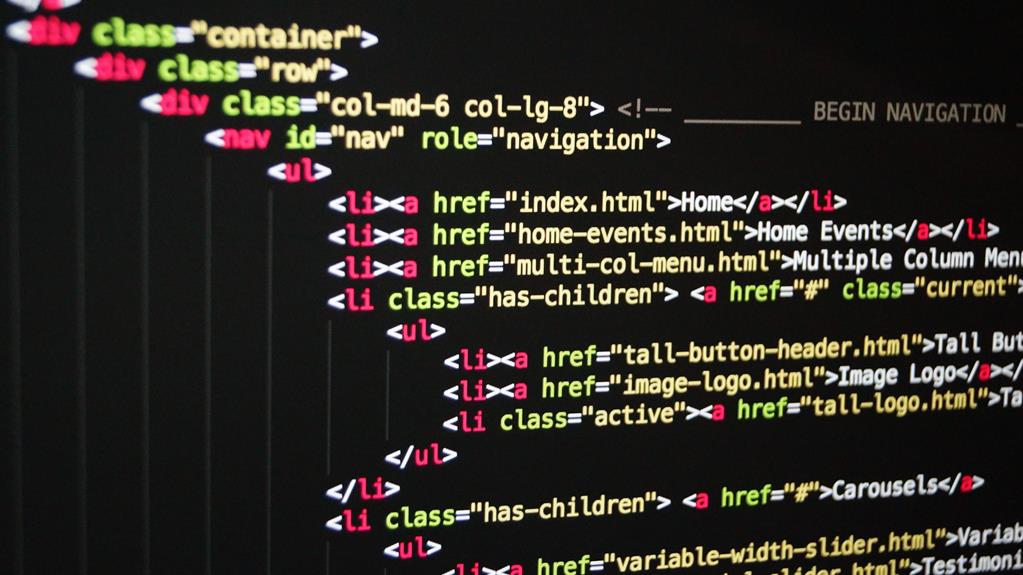As they say, necessity is the mother of invention, and I've come to realize that in our age of rapid technological change, we must reinvent ourselves. I'm here to share my journey towards liberation from the fear of AI-driven job displacement. It's not just about staying afloat; it's about thriving in a future where artificial intelligence is as common as electricity. I've distilled my experience into 11 essential tips to empower you to navigate this transition with confidence. From embracing lifelong learning to advocating for policies that protect our livelihoods, these tips are more than just strategies; they're a call to action for each of us to shape a future where technology amplifies our potential rather than limits it. Let's explore these paths together and reclaim control over our professional destinies.
Embrace Lifelong Learning
In the face of AI-driven job displacement, I've realized that starting now, embracing lifelong learning isn't just beneficial, it's essential. The rapid evolution of technology demands continuous adaptation from us all. I've found that by conducting regular skill auditing, I can identify where I need to grow to stay relevant and competitive.
Skill auditing is a strategic approach that involves taking stock of my existing skills and comparing them with market demands. It's a process of introspection and market analysis rolled into one. This way, I can pinpoint the precise skills I need to develop or update. It's like being my own career coach, focusing on areas that promise liberation from the fear of obsolescence.
I've adopted an adaptive mindset that accepts change as the only constant. Learning new technologies, methodologies, and approaches to problem-solving ensures that I'm not just keeping up, but I'm equipped to lead and innovate. It's not about chasing every new trend but discerning which skills will empower me to thrive in a dynamic, AI-influenced landscape.
This strategic pursuit of knowledge liberates me from the anxiety of AI encroachment. Continuous adaptation through lifelong learning is my ticket to staying indispensable. It's a powerful way to remain a step ahead, not just in my current role but in shaping my future career trajectory. Embracing this path of perpetual growth isn't simply a response to the rise of AI; it's a conscious choice to take control of my professional destiny in an unpredictable world.
Foster Soft Skill Development
My next strategy to combat AI-driven job displacement is honing my soft skills, which are just as critical as technical abilities in this evolving job market. I'm convinced that as machines take on more tasks, it's the human touch that will remain irreplaceable. To thrive in this new landscape, I'm focusing on fostering emotional intelligence and nurturing interpersonal relationships. These are the areas where we, as humans, have the upper hand.
I'm proactively seeking ways to improve my communication, adaptability, and leadership skills. I'm learning to read the room, to sense the unspoken vibes that an AI might miss. By becoming more attuned to others' emotions and reactions, I can connect on a deeper level, building trust and camaraderie that go beyond the binary code.
I'm also participating in workshops and trainings that emphasize teamwork and conflict resolution. These experiences push me to refine my ability to collaborate and find common ground, even in challenging situations. It's about being strategic – knowing when to take the lead and when to step back and let others shine.
In a liberated job market, it's this adaptive approach that will set me apart. Machines may analyze data, but I can interpret it with empathy and creativity. I can turn cold facts into compelling stories, and in doing that, I can keep myself indispensable.
Support Transition Programs
As we tackle the challenges of AI-driven job displacement, I can't help but stress the significance of robust transition programs. It's clear that initiatives focused on reskilling workers, when coupled with supportive government policies and corporate responsibility measures, create a strategic framework for workforce adaptability. In this way, we're not just reacting to changes, but proactively equipping individuals for the evolving job landscape.
Reskilling Worker Initiatives
Facing the reality of AI-driven job displacement, I've found that actively participating in reskilling initiatives is a vital step towards securing future employment opportunities. It's about embracing career pivoting with strategic foresight. By aligning with industry partnerships, I've been able to tap into new networks and resources that support my transition into burgeoning fields. These collaborative efforts provide access to cutting-edge training and insights directly from the sectors that are shaping the future of work.
I'm not just adapting; I'm proactively reinventing my professional journey. The landscape is evolving, and so must I, leveraging these initiatives to stay relevant and resilient. It's this adaptive mindset, aided by robust support programs, that ensures I stay ahead in the race against automation.
Government Policy Role
I've recognized that government policy plays a crucial role in providing support programs that facilitate a smoother transition for workers displaced by AI. It's vital that policy frameworks are designed with strategic insight to encourage resilience among the workforce. Government incentives can be the engine for innovation, not just for businesses adopting AI, but also for those individuals who must navigate the changing job landscape.
Corporate Responsibility Measures
Building on government initiatives, I believe it's equally crucial for corporations to actively develop and implement transition programs that support their employees through the AI integration process. Embracing corporate accountability and ethical stewardship, companies must:
- Provide retraining for roles that AI redefines, ensuring that I, along with my colleagues, can adapt to and thrive in the new landscape.
- Offer emotional and financial support during the transition, recognizing the personal and economic upheaval that AI can cause.
- Create a culture of continuous learning to empower us to stay ahead of technological shifts, not just for our own benefit, but for the collective growth and liberation of our workforce.
In this way, corporations can be both strategic in their AI deployment and adaptive to the needs of their most valuable asset: their people.
Advocate for Universal Basic Income
As a response to the surge of AI-related job displacement, I'm convinced that advocating for a universal basic income (UBI) is a crucial step. The implementation of AI taxation can fund basic income models, creating a sustainable financial pool. This tax on the automation that displaces workers can be seen as a reinvestment into the social fabric of our society, ensuring that people maintain their purchasing power and, consequently, their freedom and dignity in an increasingly automated world.
Basic income models offer a strategic cushion for the workforce, providing individuals with the flexibility to adapt to the rapidly changing job market without the immediate stress of financial ruin. UBI isn't just about survival; it's about empowering people to retrain, start their own ventures, or contribute to their communities in meaningful ways. We must design these models to be adaptive, ensuring they can evolve with the economic landscape and the needs of the citizenry.
Advocating for UBI is to stand on the side of liberation. It is an acknowledgment that the value of human life transcends the labor market. By championing UBI, I am endorsing a vision of society where everyone has the foundation upon which to build a resilient and fulfilling life, regardless of the whims of technology.
It's time we embrace the potential of UBI to foster an environment where humans can thrive alongside AI, rather than be in competition with it. I'm committed to pushing for policies that reflect this forward-thinking mindset, advocating for a safety net that allows creativity and innovation to flourish in this new era.
Prioritize Human-Centric AI Design
As we navigate the AI revolution, I'm convinced that crafting AI with a human touch is paramount. By embedding ethical algorithms into AI systems, we don't just enhance user experience; we also lay the groundwork for a future where technology and humanity coexist with clarity and purpose. Ensuring AI transparency is no longer optional—it's a strategic necessity that bolsters trust and facilitates our adaptation to an increasingly automated world.
Emphasize Ethical Algorithms
I believe that a crucial step in mitigating AI-driven job displacement is to insist on the development of ethical algorithms that prioritize human-centric design. This approach isn't just about preserving jobs; it's about safeguarding our dignity and ensuring a future where technology uplifts humanity rather than undermines it.
Here's how we can evoke a change:
- Algorithmic Fairness: Advocate for systems that are impartial and just, preventing biases that can marginalize communities.
- Ethical Oversight: Demand transparency and accountability, creating frameworks that monitor and evaluate AI ethics.
- Human-Centric Principles: Design AI that complements human ability, encouraging innovation and personal growth.
Only by being strategic and adaptive can we navigate the AI revolution. Together, let's strive for a liberated future where technology serves us all.
Enhance User Experience
Building on these three pillars, I'll now explore how enhancing user experience through human-centric AI design is crucial in tackling job displacement. By prioritizing the creation of personalized interfaces, we're not simply adapting to a new technological era; we're asserting our human agency. We must craft AI systems that are not just smart, but also socially intuitive—able to provide interactive feedback and adapt to our diverse needs. This approach ensures that AI becomes a tool for empowerment rather than a source of alienation.
Strategically, if we champion AI that complements the human experience, we can carve out new opportunities for employment that AI alone cannot fulfill. This adaptive mindset is key to navigating the shifting employment landscape, liberating us to redefine our work lives in harmony with technological progress.
Foster AI Transparency
Transparency in AI development is a cornerstone I'm focusing on to mitigate job displacement, ensuring that technology remains accessible and comprehensible to all users. This is a strategic move towards AI accountability and ethical oversight. It's not merely about keeping humans in the loop; it's about empowering them. Here's how I'm advocating for this shift:
- Demystifying the AI Process: Break down complex algorithms into understandable concepts.
- Promoting Ethical Standards: Implement clear guidelines that prioritize human values and rights.
- Ensuring AI Accountability: Create mechanisms for humans to question and audit AI decisions.
In doing so, I'm adapting our approach to technology, embedding human-centric design at its core. This isn't just about adapting to change—it's about shaping it to our collective liberation.
Invest in Job Creation Initiatives
To mitigate the effects of AI-driven job displacement, it's critical to funnel resources into initiatives that create a diverse range of new employment opportunities. It's about recognizing that while AI can streamline processes, it also opens doors for creative entrepreneurship. By investing in sectors where human creativity and innovation are irreplaceable, we safeguard a future where technology serves as a partner, not a replacement. This is where technological partnerships come into play, integrating AI's capabilities to enhance, rather than replace, human talent.
I see the solution as a two-pronged approach: first, by fostering environments that invigorate the creative spirit and second, by establishing symbiotic relationships between emerging technologies and human workers. It's not just about creating jobs; it's about sculpting a future workforce that is resilient, adaptive, and equipped to tackle challenges with a blend of technology and human ingenuity.
I am convinced that investing in educational programs that emphasize skills complementary to AI will be instrumental. This means promoting STEM subjects, yes, but also placing a stronger emphasis on design, problem-solving, and emotional intelligence—skills that AI is far from mastering. By doing so, we empower people to not only coexist with AI but to lead its progression and application.
The crux of my strategy lies in never underestimating human potential. As I align myself with innovative startups and forward-thinking enterprises, I am contributing to a movement that values human-centric development. The goal? To create a workforce that's not only diverse and dynamic but one that flourishes alongside AI, not in its shadow. It's a delicate balance to strike, but in my pursuit of liberation from the constraints of automation, it's a challenge I'm ready to embrace.
Update Educational Curriculums
I'm convinced that one must revamp educational curriculums to equip students with the skills necessary to thrive in an AI-integrated job market. It's about more than just ensuring job security; it's about fostering a generation that can innovate alongside intelligent machines, not be outpaced by them. Curriculum innovation is pivotal in this endeavor. By infusing tech literacy into every level of education, we don't just prepare our youth for the future; we empower them to shape it.
Here's how I see it:
- Integrate Critical Thinking and Problem-Solving: These skills enable individuals to adapt to new challenges that AI may present, fostering resilience and creativity.
- Promote Tech Literacy Across Disciplines: By understanding the workings of AI and technology, students can better navigate and leverage these tools for success.
- Encourage Lifelong Learning: The ethos of constant evolution and education aligns us with the ever-changing tech landscape.
To be strategic, we must look at the broader picture. The goal isn't to fight against the tide of AI but to ride it. By being adaptive, we ensure that our educational systems remain relevant and effective in this digital age.
It's about liberation - freeing our minds from the fear of obsolescence and empowering us to take the reins of technological advancement. A curriculum that evolves with the times is our map to undiscovered opportunities. With innovation in our educational approach, we not only survive the AI revolution, we lead it.
Strengthen Social Safety Nets
As we grapple with the challenges of AI-driven job displacement, it's clear that bolstering our social safety nets is a strategic imperative. Expanding unemployment benefits can provide a crucial cushion for those caught in the transition, buying them time to adapt and reskill. Considering a Universal Basic Income isn't just progressive thinking; it's an adaptive measure for an economy where job security is increasingly volatile.
Expand Unemployment Benefits
In light of AI-driven job displacement, it's essential that we expand the unemployment benefits to provide a stronger social safety net for those affected. We're not just talking about a temporary fix; this is about comprehensive social security reform that acknowledges the changing landscape of work. By doing so, we can begin to dismantle the unemployment stigma that unfairly penalizes individuals for a situation beyond their control. Consider the emotional impact:
- Empathy for those who feel abandoned by rapid technological change.
- Outrage at a system that fails to protect its most vulnerable citizens.
- Hope in the promise of policies that adapt to the new reality of work.
We must be strategic and adaptive, creating solutions that resonate with the desire for liberation from the fear of obsolescence.
Universal Basic Income
My conviction is that the implementation of a Universal Basic Income would serve as a robust pillar in fortifying our social safety nets against the tide of AI-induced job loss. In light of AI ethics, it's vital to ensure that technological progress doesn't leave swathes of the population in financial ruin. A Universal Basic Income could be that strategic adaptation, providing a baseline of economic security and empowering individuals to retrain, innovate, or even start new ventures without the paralyzing fear of destitution. Such a system would redefine our social contract, acknowledging the transformative – and often disruptive – power of AI. It's about equipping ourselves to navigate through this era with dignity, ensuring that as we embrace AI's potential, we aren't discarding our societal values.
Encourage Entrepreneurial Ventures
I believe fostering entrepreneurial ventures is a pivotal strategy to mitigate the effects of AI-driven job displacement. In the face of automation, we cannot sit back and watch as jobs vanish. Instead, we must adapt and create new opportunities where human creativity and ingenuity are at the forefront. Startup incubators and innovation hubs are already paving the way, nurturing a new generation of businesses that can thrive in a rapidly evolving landscape.
Here's why encouraging entrepreneurship is more crucial than ever:
- Innovation Breeds Resilience: When faced with AI disruption, entrepreneurial ventures often lead the charge in innovation, developing new products and services that can coexist with, or even harness, artificial intelligence.
- Diversification Spurs Economic Growth: By fostering a broad range of startups, we're not putting all our eggs in one basket. A diversified economy is less vulnerable to shocks from any single industry's automation.
- Empowerment Fuels Liberation: Entrepreneurship embodies the spirit of self-determination. For those who yearn for liberation from the constraints of traditional employment, starting their own venture offers a path to true autonomy.
As we navigate this technological tsunami, it's essential to think strategically. We must be insightful about the trends, adaptive in our approach, and unwavering in our quest for innovation. Encouraging entrepreneurship isn't just about creating jobs; it's about reimagining our role in the workforce and society at large. It's about building a future where each of us can harness our unique talents and passions, turning them into ventures that not only survive but thrive in an AI-dominated world.
Adapt to New Job Landscapes
Frequently, we're finding that adapting to new job landscapes is essential for staying relevant in an economy increasingly shaped by AI. As AI continues to advance, the job market shifts, and career agility becomes a powerful asset. It's not just about bouncing back; it's about bouncing forward, leveraging technological upskilling to pivot into roles that AI can't easily replicate.
I've learned that the trick is to treat my career as a series of learning opportunities, continuously evolving with the tide of innovation. This doesn't mean I'm constantly chasing new degrees but rather staying attuned to industry trends and acquiring skills that complement AI's growth. Let me draw you in with a table that illustrates the strategic approach to adapting:
| Skill Set | Why It's Important |
|---|---|
| Emotional Intelligence | Machines can't empathize |
| Creative Thinking | AI lacks true creativity |
| Technological Expertise | To work alongside AI |
| Data Literacy | AI thrives on data |
| Interdisciplinary Knowledge | Diverse insights lead to innovation |
In an insightful manner, I'm targeting the development of these competencies to ensure that I'm not just surviving but thriving in a tech-driven ecosystem. I'm not waiting to be liberated from the clutches of obsolescence; I'm actively liberating myself by becoming indispensable.
Strategically, I'm aligning my career goals with industries that are likely to grow alongside AI, such as healthcare, renewable energy, and tech itself. This strategic approach ensures that I'm not left behind but instead am at the forefront of change, ready to embrace whatever new opportunities arise.
Promote AI Regulation Policies
Harnessing my adaptability, I'm now advocating for robust AI regulation policies to safeguard against the potential pitfalls of unchecked AI expansion in the job market. As we stand at the crossroads of technological evolution and workforce transformation, it's paramount that we craft strategies and rules that will ensure AI empowers rather than overpowers the human element in our economies.
The journey towards effective AI regulation must consider:
- AI Taxation: Implementing a tax on AI operations can serve to level the playing field and support those displaced by automation.
- Policy Innovation: It's crucial to foster policies that incentivize the creation of new job sectors and the reskilling of workers.
- Ethical Standards: We must establish ethical guidelines to prevent AI from perpetuating biases and ensure it serves the greater good.
These steps are not merely precautionary; they are the embodiment of foresight and empowerment. AI taxation is not a punitive measure but a strategic reallocation of resources – a way to channel the immense productivity gains from AI back into our social fabric. This can fund education, retraining programs, and even provide a safety net for those blindsided by rapid technological shifts.
Policy innovation is our compass to navigate uncharted waters. It's about crafting new rules that stimulate job creation in emerging fields, ensuring that the future of work is not a zero-sum game but a tapestry of opportunity.
By setting ethical standards, I'm championing a future where technology is accountable to societal values, where each innovation is weighed against its impact on human dignity and equity.
As an advocate for liberation, I recognize that true freedom in the age of AI comes from proactive, thoughtful, and inclusive policies that prioritize the well-being of all citizens in the face of relentless progress.
Frequently Asked Questions
How Has Ai-Driven Job Displacement Historically Affected Different Demographic Groups, Such as Age or Socioeconomic Status?
AI-driven job displacement has hit various demographic groups unevenly, often deepening existing inequities. Younger, tech-savvy individuals may show more demographic resilience, while older workers or those in lower socioeconomic brackets face steeper challenges. Policy responses need to be adaptive and strategic to ensure equitable opportunities for all. I'm convinced that a liberated future hinges on our ability to innovate inclusively, ensuring that technology serves humanity, not the other way around.
What Are the Psychological Impacts of Job Displacement on Individuals, and How Can They Be Mitigated?
Job displacement hits hard, affecting my mental resilience. It's not just about losing income; it's the psychological toll, feeling replaceable. To cope, I've learned to adapt strategically, seeking emotional support and retraining, aiming for liberation from the fear of obsolescence. It's about staying agile in my career and embracing lifelong learning to ensure I'm not just a cog in the machine, but a dynamic, evolving individual.
How Can Individuals in Rural Areas or Developing Countries Counter Ai-Driven Job Displacement When They Have Limited Access to Technology and Education?
To tackle AI job threats, I'm focusing on bridging the digital divide. By nurturing entrepreneurial resilience, I'm adapting to tech changes strategically. I'm not just waiting for opportunities; I'm creating them. It's about being proactive, learning new skills, and finding niches unaffected by AI. I'm committed to staying ahead, ensuring that my community and I aren't left behind in this fast-evolving landscape. We're determined to succeed, no matter the odds.
What Role Might Alternative Economic Models, Like Cooperatives or Participatory Economics, Play in Countering Job Displacement Due to Ai?
Alternative economic models, like cooperatives, could empower me amidst AI job shifts. I'd lean into social entrepreneurship, creating businesses with social at their core. Participatory economics might let me adapt strategically, shaping decisions democratically. I'm also intrigued by Universal Basic Income as a cushion during transitions; it'd offer me some freedom to explore and innovate without the fear of destitution. Together, these models could be my toolkit for a liberated, resilient future.
How Can Displaced Workers Leverage Their Previous Experience in Completely New Industries, and What Success Stories Are There of Such Transitions?
In the digital age's chess game, I've seen workers, myself included, pivot by leveraging transferable skills. It's about identifying the universal value in my experience and conducting thorough industry research to find a new niche. I've watched colleagues transform from traditional roles to tech-savvy positions, embodying adaptability and strategic moves. Such success stories inspire a quest for liberation, proving we're not just pawns but players capable of mastering the board of career change.



